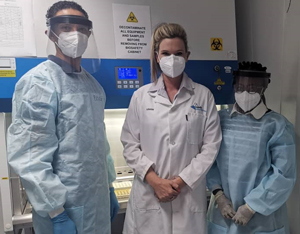
Silent killer – High Blood pressure surpasses HIV in the Corridor Group’s revalence study

A recent study done with the Ministry of Works and Transport (MoWT) and several transport sector companies revealed that although HIV poses a threat to the industry, a more clear and present danger was the high blood pressure levels.
This Employee Wellness Screening Study was conducted with 1445 participants across the country, to determine the medical conditions of the ministry’s staff members and to identify factors associated with higher prevalence.
The study further monitored the disease trends over time, to provide the basis for decision making on employee wellness interventions. The study had the added advantage that it created awareness among employees about their health status.
The MoWT contracted the WBCG to carry out the study with financial support from the Deutsche Gesellschaft Internationale Zusammenarbeit (GIZ). For the last decade, the WBCG has run its HIV programme targeting the Namibian transport sector.
These findings are a major revelation that will assist us to make informed decisions about relevant and effective health and wellness programmes for the industry said WBCG’s Wellness Services Manager, Edward Shivute.
“Our vision to be the prime driver of self-sustaining HIV and AIDS and Employee Wellness Workplace programmes in the Namibian transport sector and the Southern African Development Community need to be measured against results and data,” he said.
“Consistently challenged to quantify its narrative and success in providing life-saving health services to transport workers and specifically long-distance truck drivers, who are perceived as transporters of HIV along the corridors, the WBCG remains resolute in its pursuit to affirm its strategic position to reduce the impact of HIV within this important, economic-driving industry,” he concluded.












































